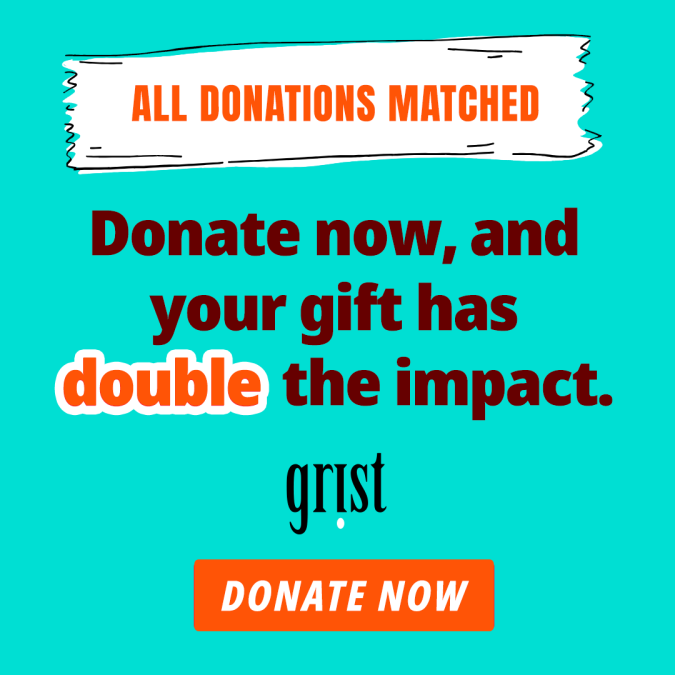A former archaeologist and journalist, Julia Kumari Drapkin has explored many careers (she’s also a 2019 Grist 50 Fixer). But a common theme runs through her CV: using storytelling to shine a light on climate change. Now she is a founder and CEO, and her company, ISeeChange, provides a platform for anyone to upload text or images about the climate-related changes they are seeing in their own communities. Recent posts include eerie images of smoky skies in the West and flooded roads in the Gulf. The potential impact goes far beyond just kvetching on social media, says Drapkin. “Small talk about the weather really is critical,” she says. When collated in one place, as with ISeeChange, “it can be used to inform real-world solutions.” Drapkin spoke to Fix about why she started the company, how people can document their own climate-crisis experiences, and how data connects the dots between information and action.
Her remarks have been edited for length and clarity.
Saying the words nobody said
I grew up on a barrier island off the coast of Florida, and we experienced flooding on a regular basis when I was a kid, so my whole world has revolved around issues of climate change for a long time. I studied anthropology in college, and one of the first things I learned is that the environment creates the people who then create the culture. And when the environment changes, the culture changes. So that’s the lens through which I perceive the world.
After college, I went into journalism, and I landed squarely in environmental and climate-science reporting. I helped cover Hurricane Katrina for the Times-Picayune in New Orleans. But it was very frustrating being a reporter and seeing how our coverage was completely disassociated from root causes.
If I went to a climate scientist and asked them if this drought here made tomatoes fail over there, causing a tomato shortage, the scientist would likely hedge and say, “Maaaaybe?” I couldn’t get anyone to say, “Yep, that’s it, it’s climate change, and you should care.” That was where the narrative always stopped. It didn’t feel right that we weren’t completing the loop. Data is key to designing solutions — so why weren’t using the data in this way?
Giving the people a platform
I started ISeeChange to help people tell stories of how they are personally impacted by climate change. The idea was to create a system in which anyone, anywhere, could make observations about what’s changing in their environment, and then ask questions about those changes. We have used community stories about flooding, urban heat islands, even air quality, to inform infrastructure design, emergency preparedness, resilience, and adaptation for cities like New Orleans, Miami, and Boston. We currently have users across 118 countries. Soon we will launch our first European ISeeChange infrastructure and development project.
The people who are most impacted by climate change are the least represented in civic engagement. But they are ones experiencing the pain of flooding or urban heat. Or they can’t get to work because of flooding. They can use ISeeChange to tell when and where and how they are impacted.
We are co-creating a community climate record. Just one story can let us know that something’s wrong and help point design in the right direction. So every story counts. And by telling us how your daily life is being impacted by the weather and climate around you, you can make a difference. When we understand our relationship with our changing environment, we understand how to plan for our future. (To submit your own observations, visit ISeeChange to register and get started tracking environmental change in your community.)
PrintAdrienne Day | Radio Free (2020-09-18T07:50:45+00:00) Seeing climate change firsthand? She’ll help you document it.. Retrieved from https://www.radiofree.org/2020/09/18/seeing-climate-change-firsthand-shell-help-you-document-it/
Please log in to upload a file.
There are no updates yet.
Click the Upload button above to add an update.
